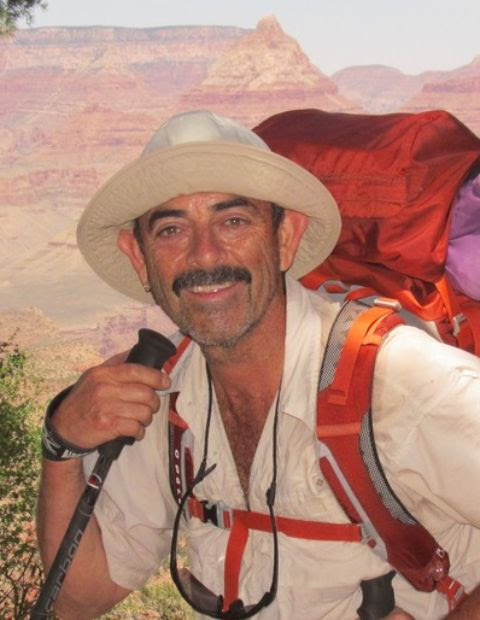The U.S. Bureau of Land Management has proposed increased oil and gas leasing in the San Juan Basin where World Heritage Site Chaco Culture National Historical Park is located. In this webinar, our expert panel of presenters will speak about:
- the significance of Chaco and its surrounding lands to the Puebloan people and to the United States;
- the Universal Value for which Chaco Culture is inscribed on the World Heritage List;
- How increased oil and gas extraction in Chaco’s immediate vicinity will impact the World Heritage Site and the landscape around it, sacred to Native America groups; and
- What can be done to stop this development, including guidance for how to submit comments to the U.S. Bureau of Land Management before the September 25 deadline.
An opportunity for questions and answers from the online audience will follow. This webinar is free to members and the public, but we encourage you to make a contribution to World Heritage USA in support of our work.
OUR SPEAKERS
 Ernie Atencio is the Southwest Regional Director of the National Parks Conservation Association (NPCA). He is a cultural anthropologist, conservationist and writer with deep Indo-Hispano roots in northern New Mexico, whose many publications include two books about natural resources and environmental justice in northern New Mexico. Ernie Atencio is the Southwest Regional Director of the National Parks Conservation Association (NPCA). He is a cultural anthropologist, conservationist and writer with deep Indo-Hispano roots in northern New Mexico, whose many publications include two books about natural resources and environmental justice in northern New Mexico.
 Paul Reed is a Preservation Archaeologist with Archaeology Southwest, based in Taos, New Mexico. For the last six years, Reed has worked to protect the Greater Chaco Landscape from the effects of expanded oil and gas development associated with fracking. Through a series of meetings and forums, Archaeology Southwest and its partners have focused on expanding protections to sites, traditional cultural places, and fragile landscapes in the greater San Juan Basin. Paul Reed is a Preservation Archaeologist with Archaeology Southwest, based in Taos, New Mexico. For the last six years, Reed has worked to protect the Greater Chaco Landscape from the effects of expanded oil and gas development associated with fracking. Through a series of meetings and forums, Archaeology Southwest and its partners have focused on expanding protections to sites, traditional cultural places, and fragile landscapes in the greater San Juan Basin.
 Kurt Riley is a Puebloan Tribal Leader who recently completed his third term as the appointed Governor of the Pueblo of Acoma. He has also served as the Chairman of the Ten Southern Pueblo Council of Governors, co-chair of the All Pueblo Council of Governors Natural Resources and Health Committees. Kurt Riley is a Puebloan Tribal Leader who recently completed his third term as the appointed Governor of the Pueblo of Acoma. He has also served as the Chairman of the Ten Southern Pueblo Council of Governors, co-chair of the All Pueblo Council of Governors Natural Resources and Health Committees.
The views expressed by speakers or other third parties in World Heritage USA webinars, events and/or conferences are those of the speaker or third-party and not, necessarily, of World Heritage USA.
The webinar was free but we would appreciate your support!
Please donate and join World Heritage USA as a member now.
.JPG) 
|


 Ernie Atencio is the Southwest Regional Director of the National Parks Conservation Association (NPCA). He is a cultural anthropologist, conservationist and writer with deep Indo-Hispano roots in northern New Mexico, whose many publications include two books about natural resources and environmental justice in northern New Mexico.
Ernie Atencio is the Southwest Regional Director of the National Parks Conservation Association (NPCA). He is a cultural anthropologist, conservationist and writer with deep Indo-Hispano roots in northern New Mexico, whose many publications include two books about natural resources and environmental justice in northern New Mexico. Paul Reed is a Preservation Archaeologist with Archaeology Southwest, based in Taos, New Mexico. For the last six years, Reed has worked to protect the Greater Chaco Landscape from the effects of expanded oil and gas development associated with fracking. Through a series of meetings and forums, Archaeology Southwest and its partners have focused on expanding protections to sites, traditional cultural places, and fragile landscapes in the greater San Juan Basin.
Paul Reed is a Preservation Archaeologist with Archaeology Southwest, based in Taos, New Mexico. For the last six years, Reed has worked to protect the Greater Chaco Landscape from the effects of expanded oil and gas development associated with fracking. Through a series of meetings and forums, Archaeology Southwest and its partners have focused on expanding protections to sites, traditional cultural places, and fragile landscapes in the greater San Juan Basin. Kurt Riley is a Puebloan Tribal Leader who recently completed his third term as the appointed Governor of the Pueblo of Acoma. He has also served as the Chairman of the Ten Southern Pueblo Council of Governors, co-chair of the All Pueblo Council of Governors Natural Resources and Health Committees.
Kurt Riley is a Puebloan Tribal Leader who recently completed his third term as the appointed Governor of the Pueblo of Acoma. He has also served as the Chairman of the Ten Southern Pueblo Council of Governors, co-chair of the All Pueblo Council of Governors Natural Resources and Health Committees..JPG)
